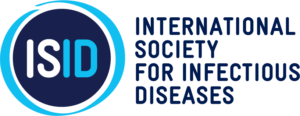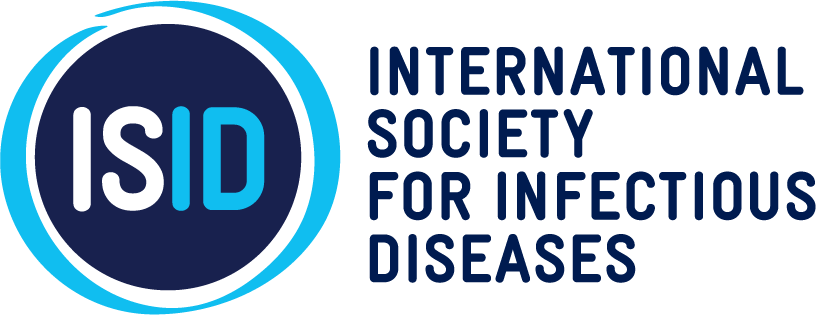On October 5th, we celebrate World Meningitis Day to raise awareness of the global and local impact of meningitis. World Meningitis Day was started in 2009 by a group of individuals affected by the disease. Currently, it has grown and become a global movement that brings together people from across the world to highlight the need to raise awareness of meningitis, its symptoms and long-term complications, the vaccines available, and emphasize this is an infection that demands global attention and coordinated efforts to be defeated.
Meningitis is a life-threatening infectious disease that affects millions of people of all ages worldwide and is considered a major global public health issue. The disease is caused by an inflammation of the membranes that surround the brain and spinal cord, and it strikes quickly, being able to lead to death in less than 24 hours in the most serious cases. Although considerable efforts have been made over the years to reduce the burden of meningitis, it accounted for 5 million cases globally and 290,000 deaths in 2017, according to the World Health Organization. People all over the world are at risk of meningitis, but young people are the most affected by the disease. Meningitis is considered a major threat across the world, but the highest burden of the disease is found in the meningitis belt of sub-Saharan Africa.
Meningitis can be caused by viruses and bacteria. Although cases of viral meningitis are more common, bacterial meningitis is more serious. Acute bacterial meningitis is considered one of the most fatal and disabling forms of the disease, leading to epidemics, lifelong disabilities among survivors, and high mortality rates. It's estimated that 1 in 6 people who develop bacterial meningitis die, and 1 in 5 develop severe complications. Meningitis can be caused by different bacterial species; however, the main agents of acute bacterial meningitis are Neisseria meningitidis (meningococcus), Streptococcus pneumoniae (pneumococcus), Haemophilus influenzae, and Streptococcus agalactiae (group B streptococcus, GBS). These bacterial pathogens are responsible for most deaths from meningitis worldwide, and they can cause other illnesses like sepsis and pneumonia. Meningococcus, pneumococcus, and H. influenzae can be spread from person-to-person by respiratory droplets or throat secretions, while GBS can be transmitted vertically from mother to neonate during birth as it can be part of the human gut or vaginal microbiota.
Clinical features and symptoms can vary according to the causative agent, course of the disease (acute, subacute, or chronic), brain involvement (meningo-encephalitis) and systemic complications (e.g., sepsis). However, the most common symptoms include fever, headache, stiff neck, nausea, vomiting, and altered mental status (confusion). Seizures can also occur in some cases. Likewise, bacterial meningitis can cause bloodstream infections and sepsis. The symptoms usually get started quickly, in a few hours or in 1-2 days, and around 25% of the survivors develop severe after-effects, including brain damage, hearing loss, and learning disabilities. These serious long-term complications cause profound emotional, social, and financial impacts on the individuals and families affected.
Fast and accurate diagnosis and proper treatment are crucial to saving lives and avoiding long-term complications. People who develop bacterial meningitis are usually treated with antibiotics in the hospital for at least a week, and the choice of antibiotics varies according to the bacterial pathogen involved. However, although antibiotic treatment is highly effective, safe and affordable vaccines offer long-lasting protection against the most common types of bacterial meningitis. There are licensed vaccines against meningococcal, pneumococcal and Haemophilus influenzae diseases that cover the most harmful strains belonging to serotypes or serogroups associated with meningitis. A human GBS vaccine has not been licensed yet, but there are promising approaches in clinical trials, and it is expected that by 2026 at least one GBS vaccine will be licensed for maternal immunization. However, access to proper diagnosis, treatment, healthcare support for lifelong disabilities, and vaccination against bacterial meningitis is not universal, and it is often insufficient in low- and middle-income countries, which are the countries that suffer the most from the disease.
So, in this context, the WHO, together with many partners, defined a global strategy to tackle meningitis globally, but especially in LMIC. The global roadmap Defeating Meningitis by 2030 has the vision "Towards a world free of meningitis" and encompasses three major goals, including: elimination of bacterial meningitis epidemics; reduction of cases of vaccine-preventable bacterial meningitis by 50% and deaths by 70%; and reduction of disability and improvement of quality of life after meningitis due to any cause. Based on all these goals, the road map identified strategic aims, activities, and milestones across five main cornerstones that include prevention and epidemic control; diagnosis and treatment; disease surveillance; support and care for people affected by meningitis; and advocacy and engagement. Additionally, efforts have been made to improve meningitis surveillance in the meningitis belt of sub-Saharan Africa by the MenAfriNet consortium, and a Global Meningitis Genome Partnership has been formed to improve strain identification and global tracking of meningococcus, pneumococcus, H. influenzae and GBS.
In the face of the challenging scenario of meningitis as a major global public-health threat, coordinated efforts must be made both locally in the most affected locations and globally to provide universal access to vaccines and healthcare assistance to all individuals affected by the disease and to support people disabled by meningitis and their families to ensure they have rewarding lives. A world free of meningitis and with improved quality of life is possible and may be achieved to provide a better world for the younger generation.
By Laura Oliveira, PhD
Postdoctoral fellow at Federal University of Rio de Janeiro, Brazil
ISID Emerging Leader

